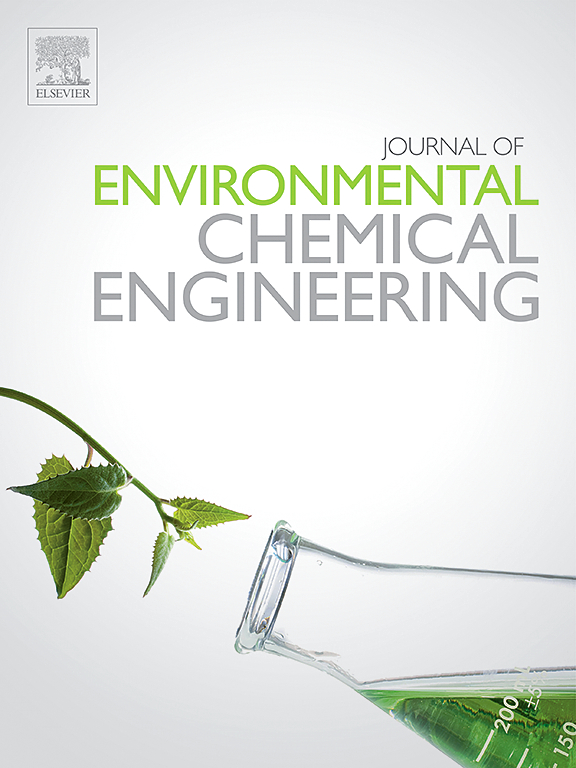Life cycle sustainability assessment of bioderived advanced materials: A state-of-the-art Review
IF 7.4
2区 工程技术
Q1 ENGINEERING, CHEMICAL
引用次数: 0
Abstract
Bioderived advanced materials possess unique functional properties together with a potential to improve environmental sustainability. This study conducts a critical review of literature on life cycle sustainability assessment (LCSA) of biobased higher-value products with emphasis on bioderived advanced materials including nanocelluloses (cellulose nanocrystals (CNCs) and cellulose nanofibers (CNFs)), and carbon materials (lignin carbon fibre (LCF) and hard carbons (HCs)). The environmental impact of CNCs production from Kraft and dissolving pulp via sulfuric acid hydrolysis is significantly influenced by the end-of-life (EoL) management of sulfuric acid either via recycling or neutralisation with sodium hydroxide. This highlights trade-offs and the need for more sustainable EoL options. Likewise, the production of CNFs using Kraft, dissolving and sulfite pulp via 2,2,6,6-tetramethylpiperidine-1-oxyl (TEMPO) oxidation followed by mechanical homogenisation or sonication indicates higher environmental impact compared with enzymatic hydrolysis. Sustainability of LCF is significantly influenced by the lignin recovery and fabrication technique, thus low-cost sustainable solvents and pathways for LCF production should be prioritised. Existing studies indicate the advantages of HCs production via hydrothermal carbonisation (HTC). However, the sustainability performance of HC is highly influenced by the carbon yield and electrochemical performance, therefore, a comprehensive optimisation of the operating variables is crucial for advancing the sustainability and development of bioderived HCs for energy applications. Significant methodological disparities were observed among the reviewed studies, leading to variations in assessment outcomes. Economic and environmental assessments are frequently presented as standalone results even for combined assessments, which further stresses the inherent heterogeneity across assessment tools.
生物衍生先进材料生命周期可持续性评估:最新综述
生物衍生先进材料具有独特的功能特性,并具有改善环境可持续性的潜力。本研究对有关生物基高价值产品生命周期可持续性评估(LCSA)的文献进行了批判性综述,重点关注生物衍生先进材料,包括纳米纤维素(纤维素纳米晶体(CNCs)和纤维素纳米纤维(CNFs))和碳材料(木质素碳纤维(LCF)和硬碳(HCs))。通过硫酸水解从牛皮纸浆和溶解浆生产 CNCs 对环境的影响很大程度上受到硫酸寿命终期 (EoL) 管理的影响,即通过回收利用或用氢氧化钠中和。这凸显了权衡利弊以及对更具可持续性的 EoL 方案的需求。同样,使用牛皮纸浆、溶解浆和亚硫酸盐浆,通过 2,2,6,6- 四甲基哌啶-1-氧(TEMPO)氧化法生产 CNF,然后进行机械均质或超声处理,与酶水解法相比,对环境的影响更大。木质素回收和制造技术对 LCF 的可持续性影响很大,因此应优先考虑低成本的可持续溶剂和 LCF 生产途径。现有研究表明,通过水热碳化(HTC)生产 HCs 具有优势。然而,碳氢化合物的可持续性性能受碳产量和电化学性能的影响很大,因此,全面优化操作变量对于推进生物衍生碳氢化合物在能源应用领域的可持续性和发展至关重要。所审查的研究在方法上存在显著差异,导致评估结果各不相同。即使是综合评估,经济和环境评估也经常作为独立结果提出,这进一步强调了各种评估工具之间固有的差异。
本文章由计算机程序翻译,如有差异,请以英文原文为准。
求助全文
约1分钟内获得全文
求助全文
来源期刊

Journal of Environmental Chemical Engineering
Environmental Science-Pollution
CiteScore
11.40
自引率
6.50%
发文量
2017
审稿时长
27 days
期刊介绍:
The Journal of Environmental Chemical Engineering (JECE) serves as a platform for the dissemination of original and innovative research focusing on the advancement of environmentally-friendly, sustainable technologies. JECE emphasizes the transition towards a carbon-neutral circular economy and a self-sufficient bio-based economy. Topics covered include soil, water, wastewater, and air decontamination; pollution monitoring, prevention, and control; advanced analytics, sensors, impact and risk assessment methodologies in environmental chemical engineering; resource recovery (water, nutrients, materials, energy); industrial ecology; valorization of waste streams; waste management (including e-waste); climate-water-energy-food nexus; novel materials for environmental, chemical, and energy applications; sustainability and environmental safety; water digitalization, water data science, and machine learning; process integration and intensification; recent developments in green chemistry for synthesis, catalysis, and energy; and original research on contaminants of emerging concern, persistent chemicals, and priority substances, including microplastics, nanoplastics, nanomaterials, micropollutants, antimicrobial resistance genes, and emerging pathogens (viruses, bacteria, parasites) of environmental significance.
 求助内容:
求助内容: 应助结果提醒方式:
应助结果提醒方式:


